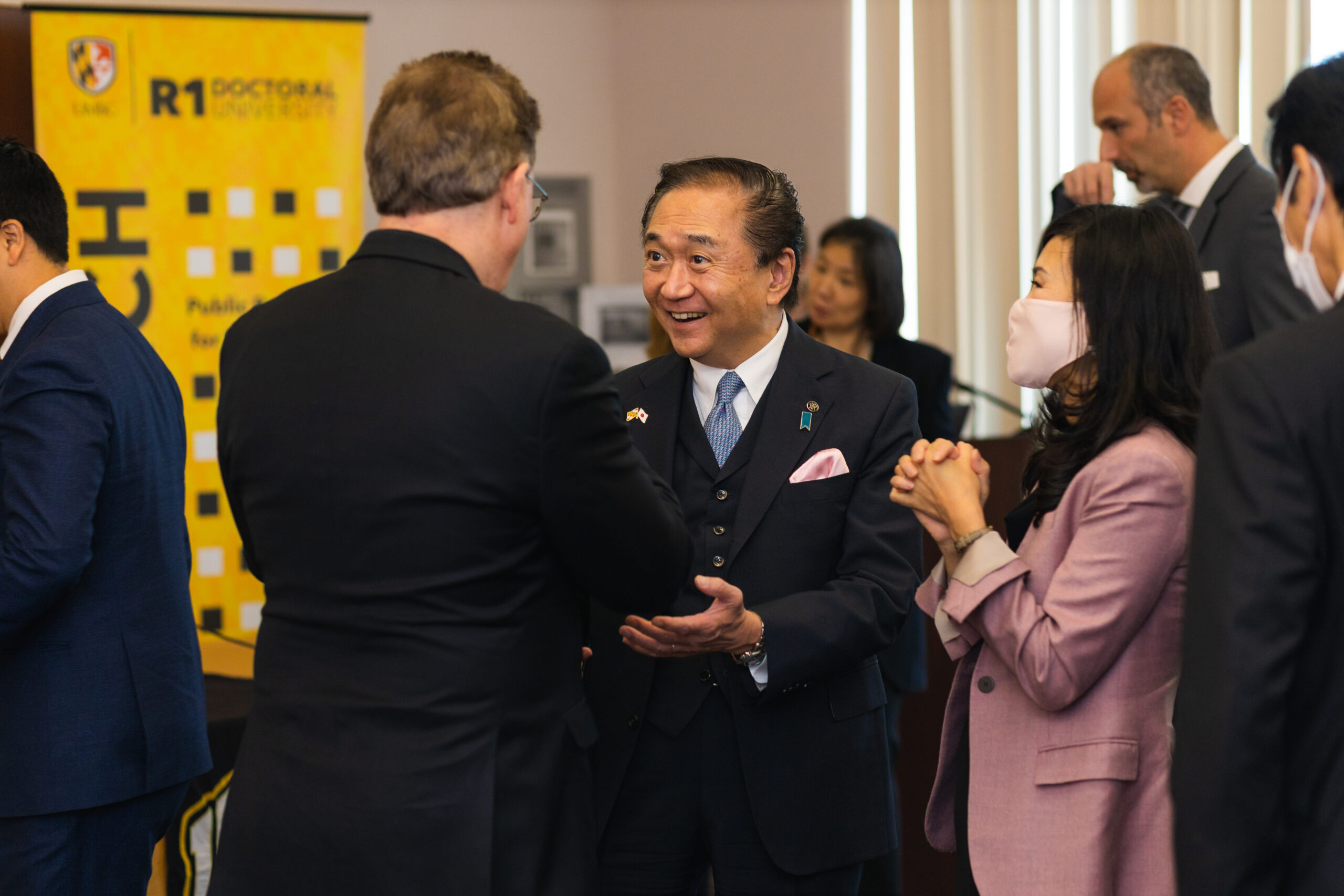UMBC recently partnered with the government of Japan’s Kanagawa prefecture to host the seminar “New Frontiers in Healthcare Management,” examining innovative approaches to an aging society. The UMBC organizers included the department of sociology, anthropology, and public health (SAPH), Erickson School of Aging Studies, and doctoral program in gerontology. The event brought together researchers, government leaders, and practitioners to discuss leading practices and new research on the management of healthy aging in Kanagawa and in Maryland.
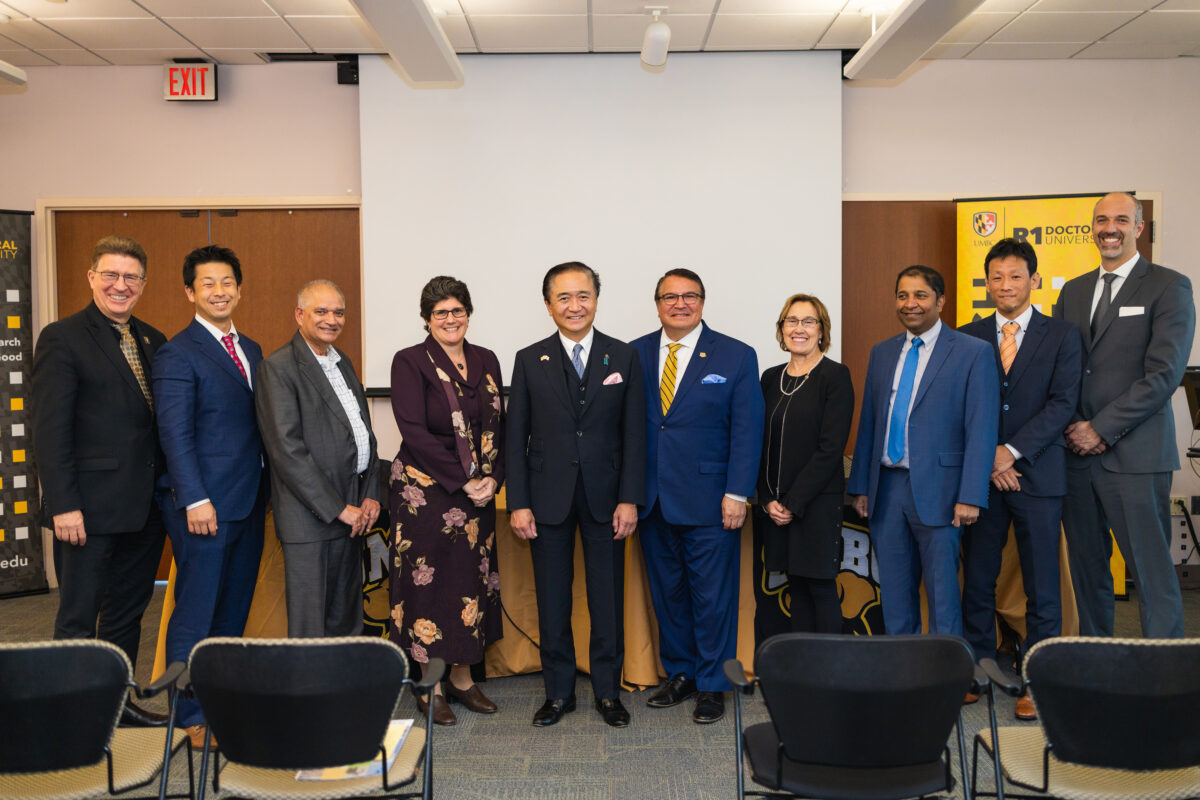
Kanagawa has a population of over nine million people and is known as a “super-aging society,” with the largest aging population in the world and the highest number of centenarians. In 2017, Kanagawa Governor Yūji Kuroiwa developed and implemented the Kanagawa Prefecture’s Healthcare New Frontier health policy package to address the myriad needs of this population by embracing past and present methods of proactive healthcare management.
The seminar’s participants from Japan shared how these policies can inform the future management of aging societies and the development of impactful life science technologies across the world, with Maryland as a leading partner.
“This event has been a wonderful opportunity to celebrate the 40th anniversary of our partnership as a sister state with the Kanagawa Prefecture,” said Luis E. Borunda, the Maryland Deputy Secretary of State, at the event. “Yūji Kuroiwa, governor of Kanagawa Prefecture, has always been at the forefront of what it means to age well. He is transforming the world to be a better place to grow older with the concept ‘ME-BYO.’”
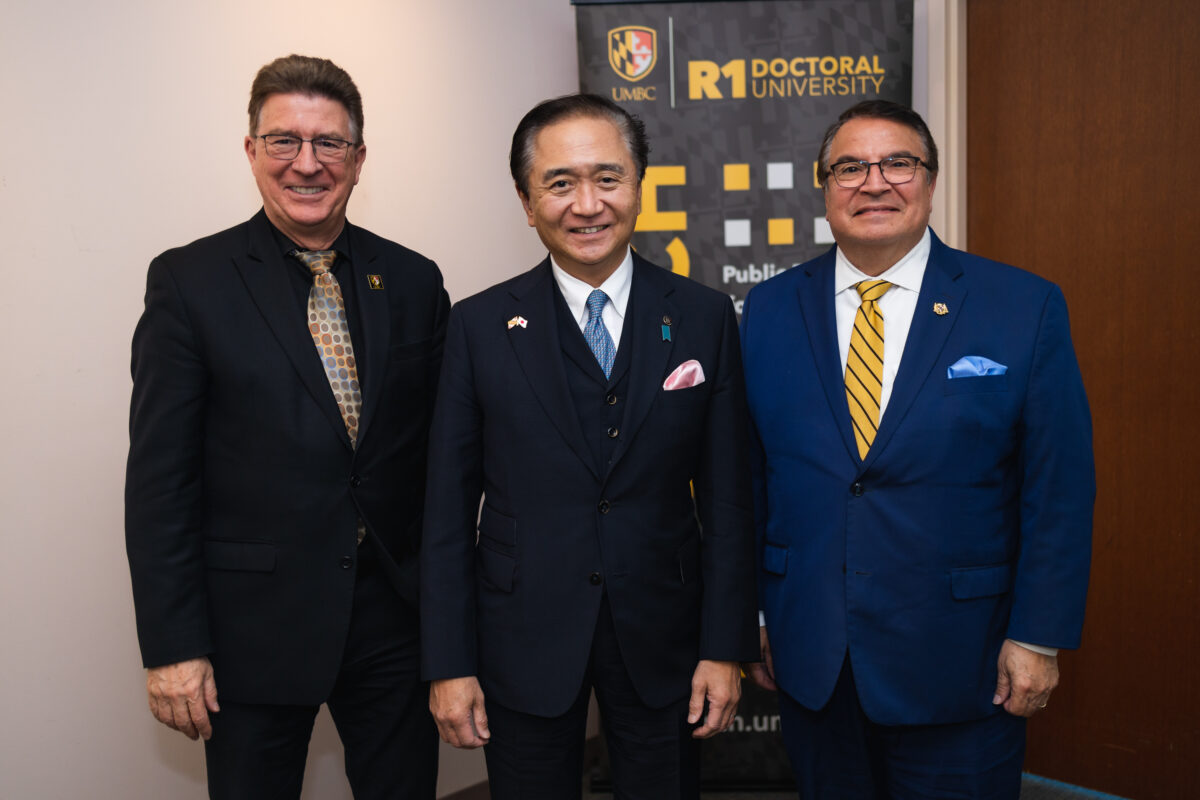
ME-BYO meets medical technologies
ME-BYO is a state of being where a person is defined as neither sick nor healthy, but living in a continual state of maintaining good health wherever they are in the spectrum of personal wellbeing. Governor Kuroiwa’s Healthcare New Frontier health policy combines the traditional concept of ME-BYO with advanced technology, regenerative medicine, robotics, and information and communication technologies.
“When we think of our health, we think that we are either healthy or sick, but in reality, there is no cut line. Our state of health gradually changes between healthy and sick every day. This is the state of ME-BYO,” said Governor Kuroiwa. “To manage and improve our health is to manage ME-BYO.”
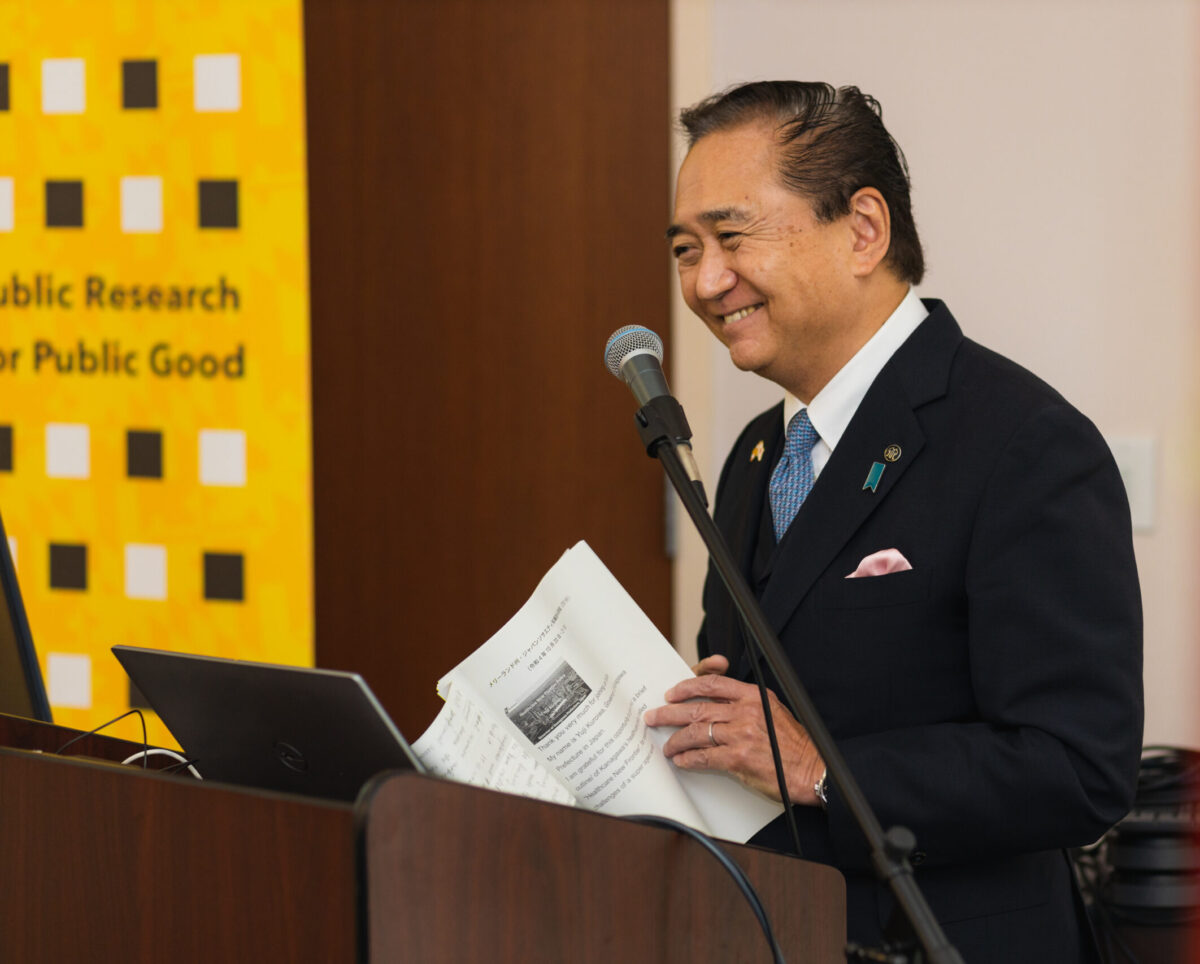
The purpose of the prefecture’s new health policy is to prevent illness and minimize illness progression through programs that promote healthy behaviors such as a balanced diet, exercise, and social activities. This includes fostering age-friendly living communities that can improve physical and mental health. The ME-BYO approach also encourages monitoring vital signs using biomedical life science technologies.
“By integrating the ME-BYO concept with advanced medical technologies we aim for healthy longevity as well as create new industries and markets,” said Governor Kuroiwa. “We hope to strengthen partnerships between Maryland and Kanagawa Prefecture to further the development of the life science industry in both.”
Benefits of lifelong learning
At UMBC, aging research can be found across a broad range of disciplines, using different approaches. Some faculty focus on lifelong learning and education or trauma-centered care. Others take novel approaches to data collection, management, and analysis to develop insights on healthy aging and the life course and the social determinants of health, such as access to quality healthcare, living environments, social networks, and economic forces.
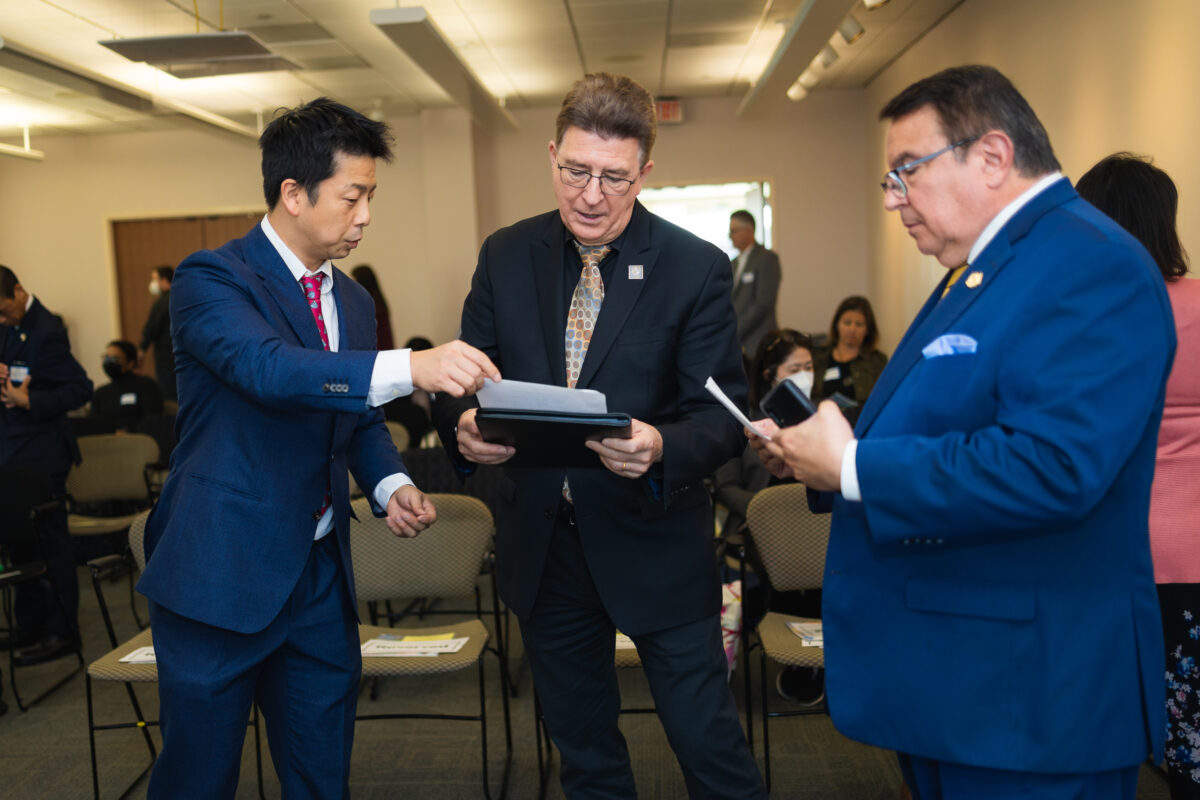
Research by UMBC’s Taka Yamashita, a professor of SAPH, has revealed that individuals with high educational attainment are more likely to pursue education activities later in life. Preliminary findings have found that lifelong learning has a strong correlation to long-term health and wellbeing. However, further research is needed to understand why this link exists.
“The optimal goal of my research is to create a situation where we can actually prescribe lifelong learning just like we do physical activities today, to maintain and promote health and wellbeing later in life,” says Yamashita.
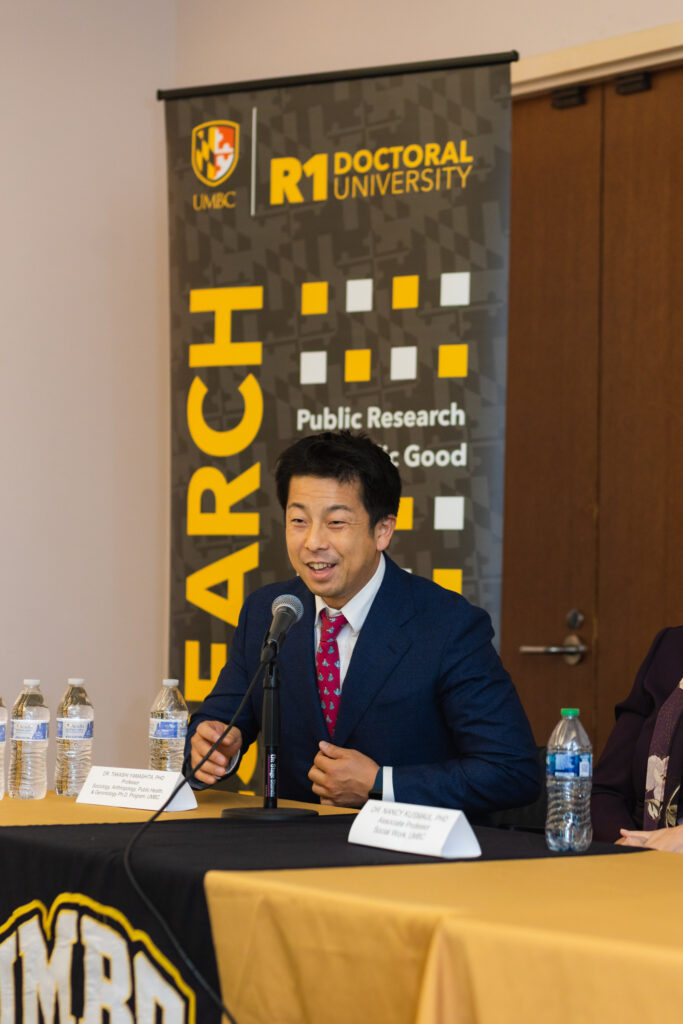
Statistical models to improve health outcomes
In order to engage more people in lifelong learning and other activities that promote well-being, communities need help to prevent or minimize their risks of adverse health events, the speakers also noted. Ian Stockwell, an associate professor of information systems, spoke about the potential of statistical models to support healthy aging and the ongoing community engagement of older adults.
Stockwell is the associate director of healthcare research in UMBC’s College of Engineering and Information Technology and also a liaison to The Hilltop Institute at UMBC, which develops predictive analytics related to healthcare. Stockwell was previously chief data scientist at Hilltop and his current research focuses on the use of data to improve healthcare systems.
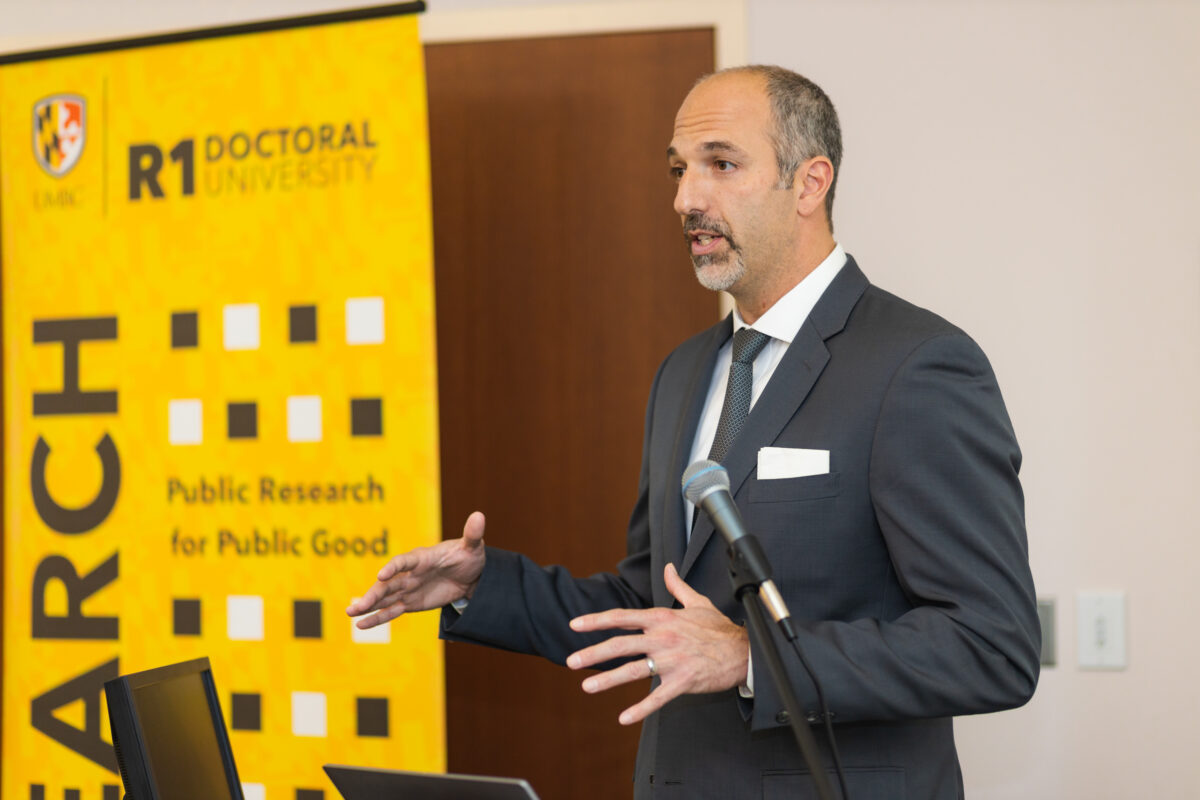
For the last three years, Stockwell and a team of Hilltop researchers have been building statistical models incorporating the characteristics that influence the health and wellbeing of a person, like chronic conditions and access to food, transportation, and housing. Their models can measure not only the risk of a population for adverse health events—such as avoidable hospital visits, complications due to diabetes, or premature death—but also the role of factors and characteristics associated with their daily environment.
Often, people who are most at risk of negative health outcomes are not able to seek care. One goal of this research is to use the information from the models to inform the creation of an intervention outreach team that can identify those individuals with the highest risk and get them the services that they need.
“These models currently predict avoidable hospitalization, avoidable long-term admission to nursing homes, complications due to diabetes, and opioid overdoses,” says Stockwell. “I love helping people and these models have served two-million Marylanders who are covered by Medicare and Medicaid.”
Trauma-informed care
Trauma is an important event in the life course that can impact health and health outcomes for people in any population. For residents of long-term care and nursing homes, trauma-informed care is essential to psychosocial well-being, UMBC researchers shared. UMBC’s Nancy Kusmaul, an associate professor of social work, and Brandy Wallace, an associate professor of SAPH, are working to help nursing homes implement trauma-informed care practices.
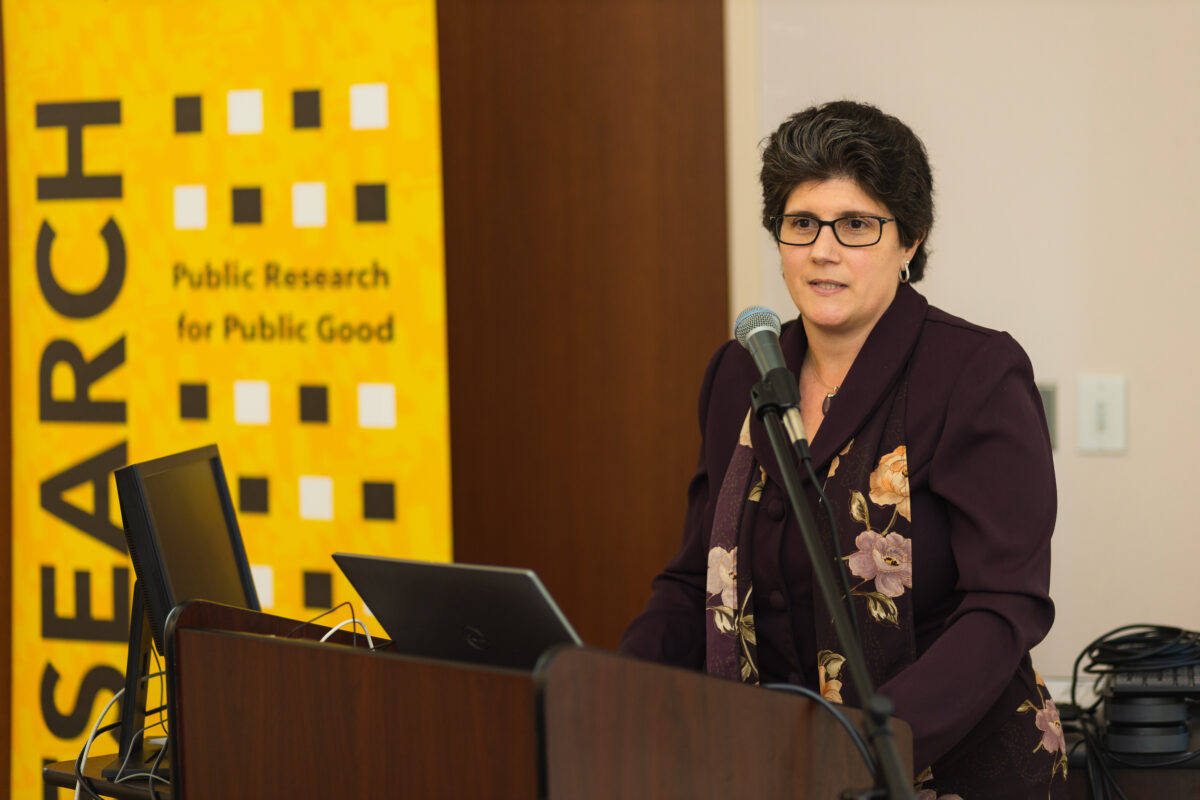
“Trauma-informed care is a perspective and organizational model that presumes residents, staff, caregivers, family members, and anyone who might be at the nursing home, might have experienced some kind of trauma that we might not know,” said Kusmaul at the event.
Traumas that people experience because of gender, age, location, discrimination, and oppression can be perceived differently around the world, she explained. Trauma-informed care increases the compassion and empathy that caregivers can provide and helps them focus their care in a way that reduces retraumatization for everyone, supporting wellbeing.
Trauma-informed practices may look different across cultures, but they are important to explore deeply whether someone is in Maryland or Kanagawa, noted Kusmaul. “They are part of the human experience,” she said. “No matter who you are, where you are, or your nationality, trauma-informed care is essential to the wellbeing of all populations.”
A vision for healthy aging
Madhav Thambisetty, a senior clinical investigator at the National Institute of Aging, also spoke at the seminar, sharing research on pharmaceutical advances in aging care. Manabu Seo, chief executive officer at Elixirgen Scientific, and Rama Modali, chief executive officer of Reprocell USA, discussed advances in drug discovery and regenerative medicine.
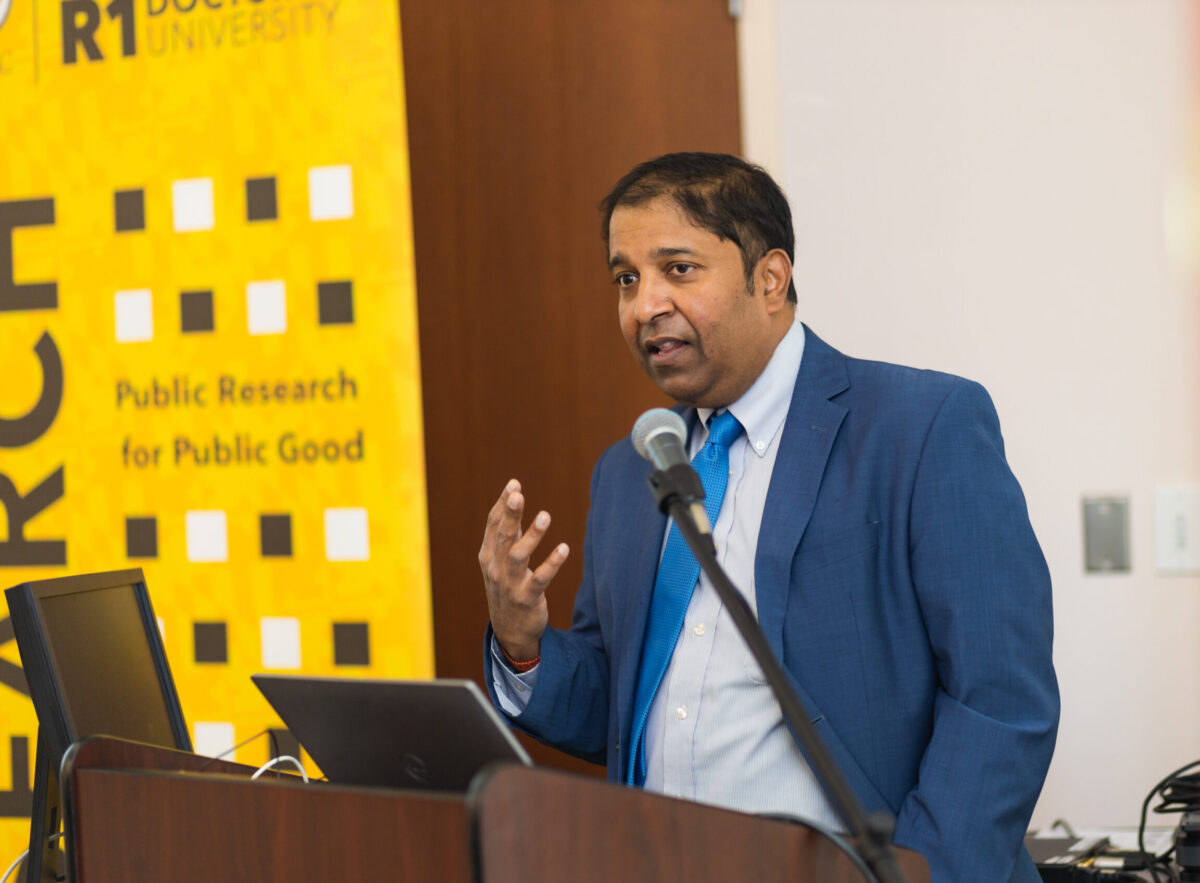
The seminar concluded with a panel including Yamashita, Kusmaul, Stockwell, and Governor Kuroiwa, led by Dana Bradley, dean of the Erickson School, as well as a poster presentation featuring work by doctoral students from the UMB/UMBC Doctoral Program in Gerontology and the UMB School of Social Work .
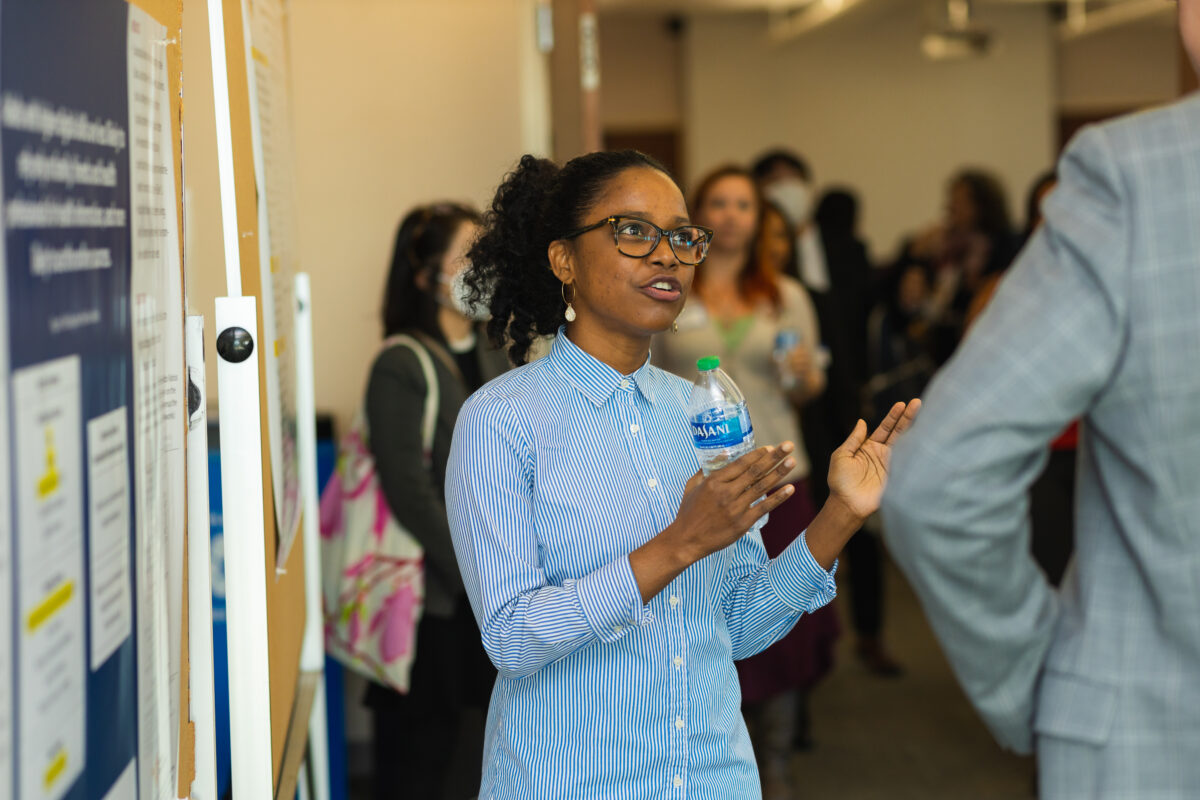
(Photo by Kiirstn Pagan ’11)
The consensus for the future of healthy aging was that no single perspective or narrow approach will be successful. Supporting the health and wellbeing of the aging population depends on international innovation and collaboration in life science biotechnologies, novel clinical approaches, effective data management and analysis, and thoughtful approaches to care and wellbeing centered on human experiences.
“UMBC played an important role in connecting Kanagawa and Maryland, through education and research, to develop this unique international seminar,” said Yamashita. “I hope that this seminar inspired policymakers, researchers, and students to critically examine how the ME-BYO concept and policy may contribute to our current views on aging and healthcare.”
Tags: CAHSS, cahssresearch, EricksonSchool, Information Systems, International Stories, Research, SAPH, SocialWork

